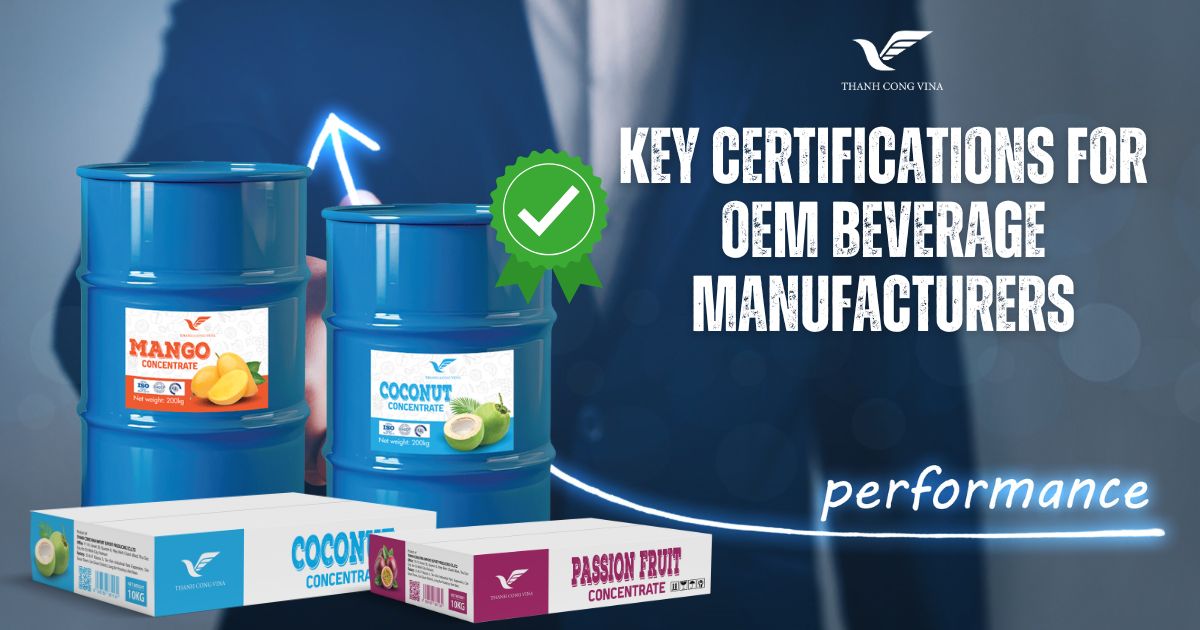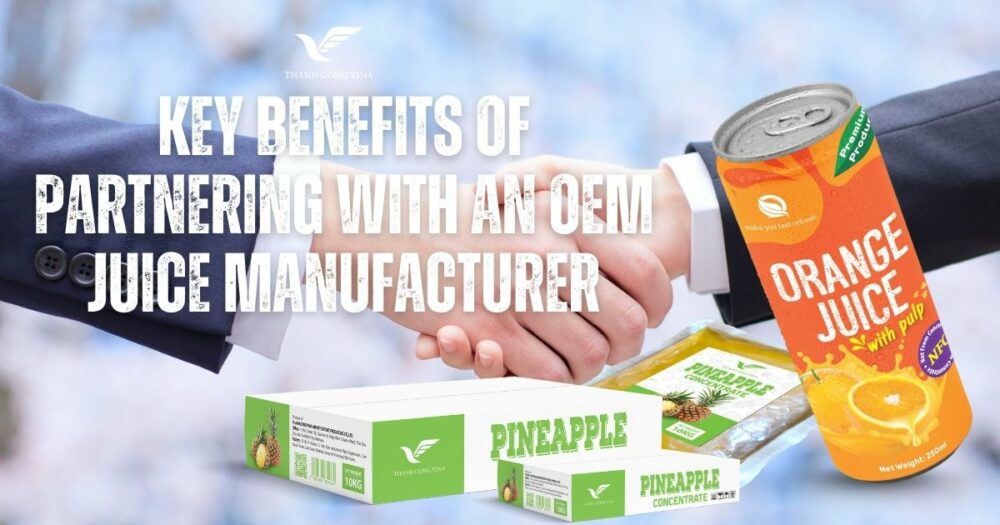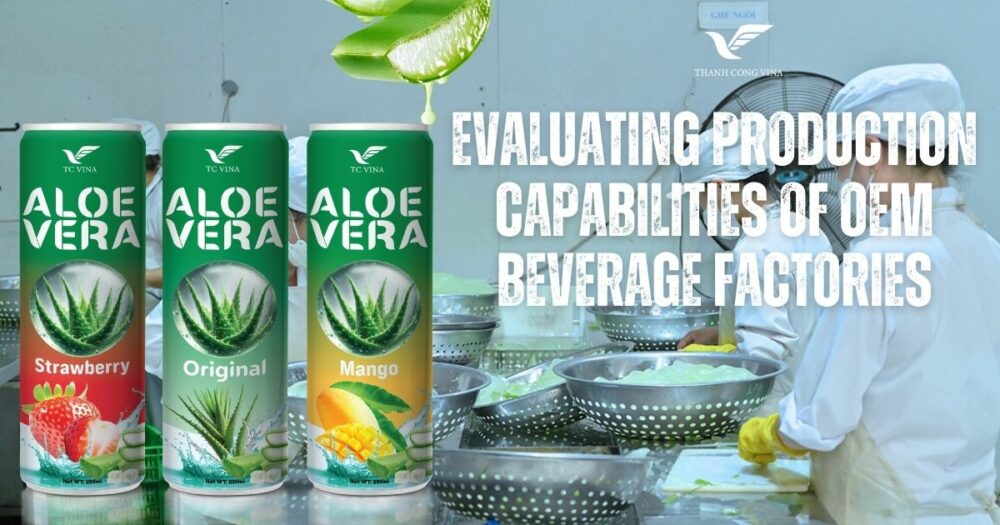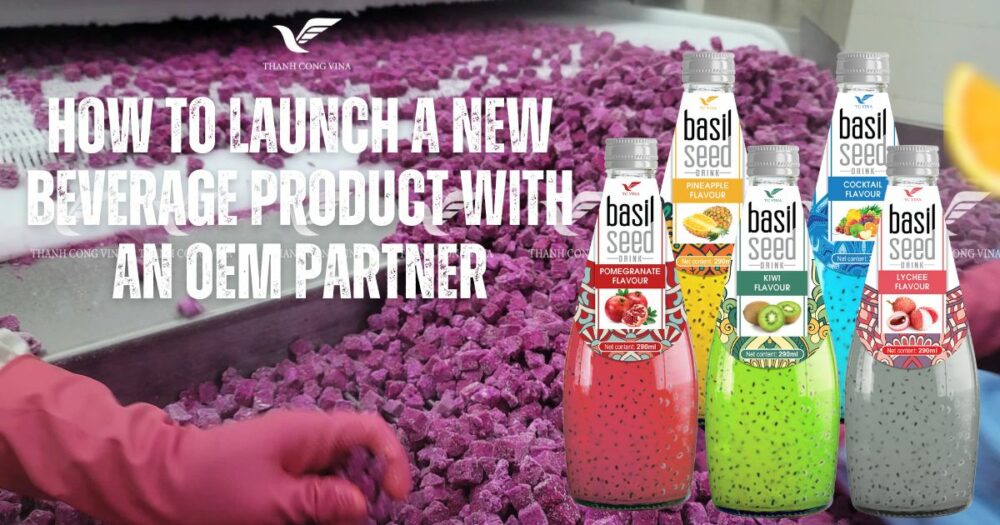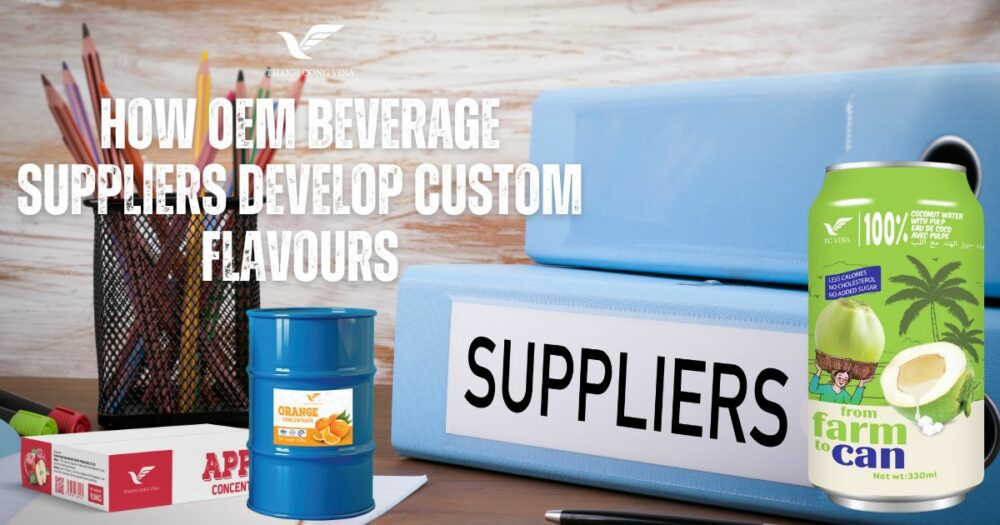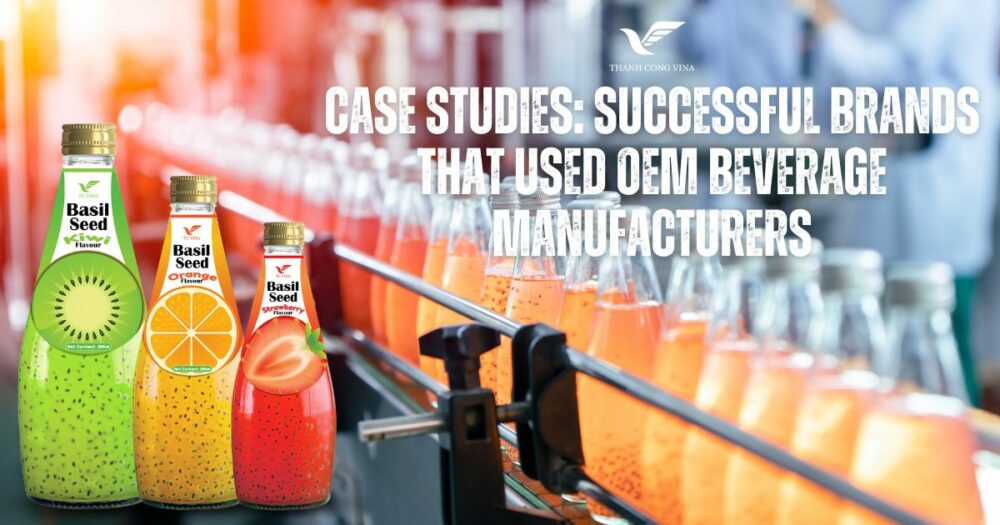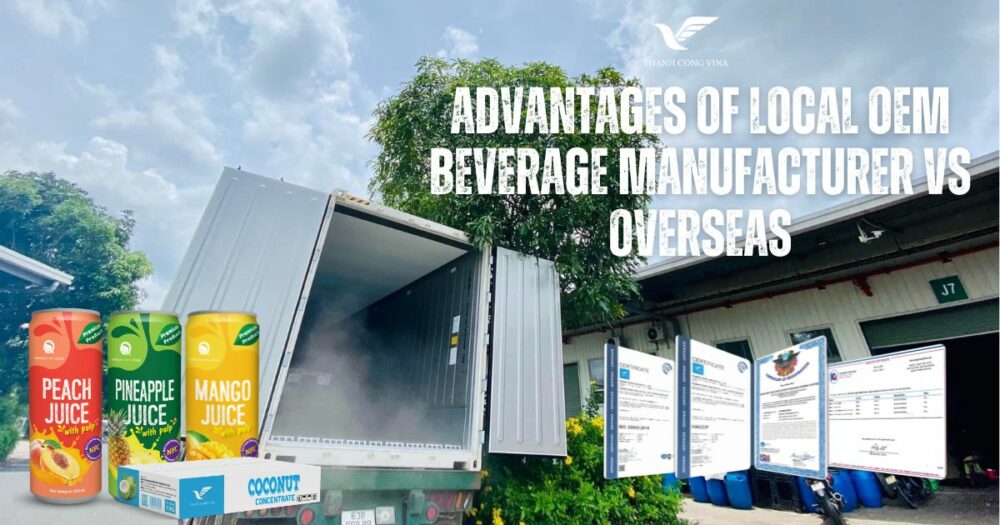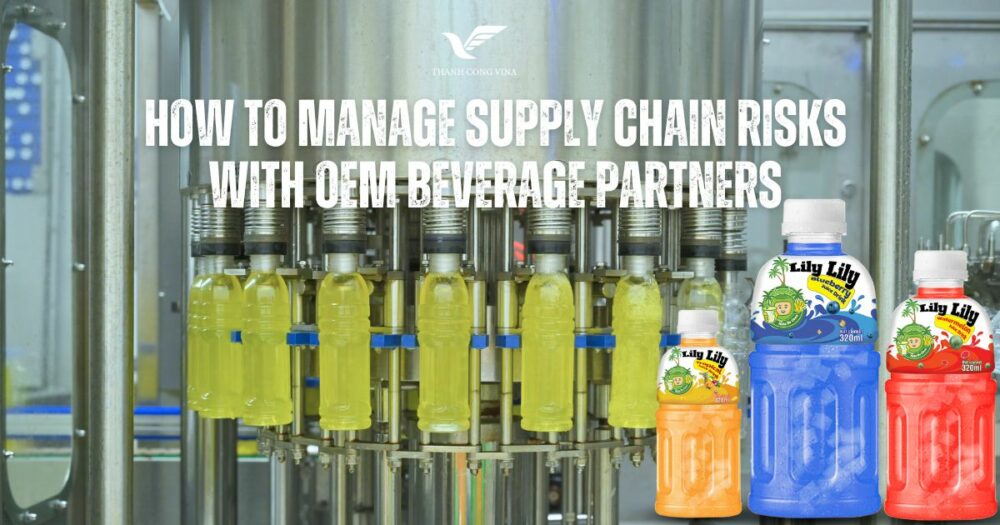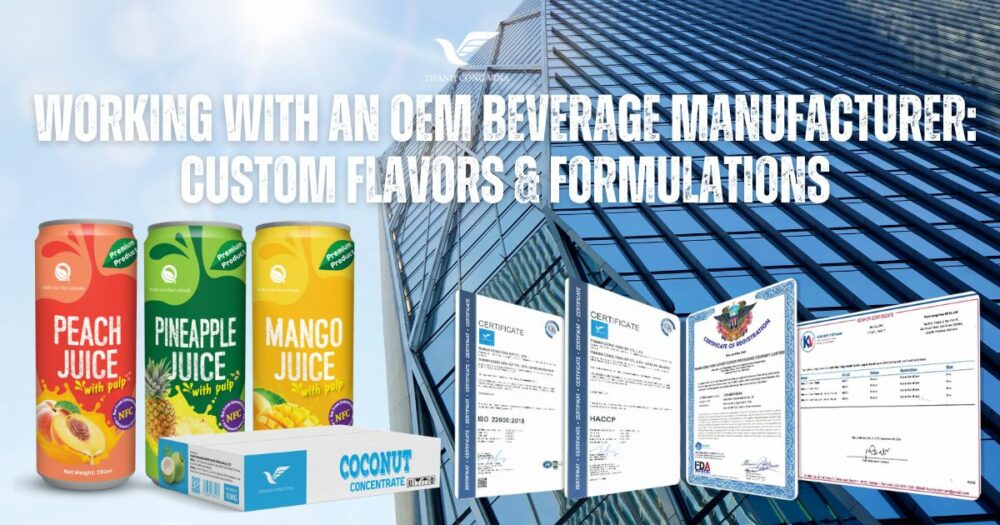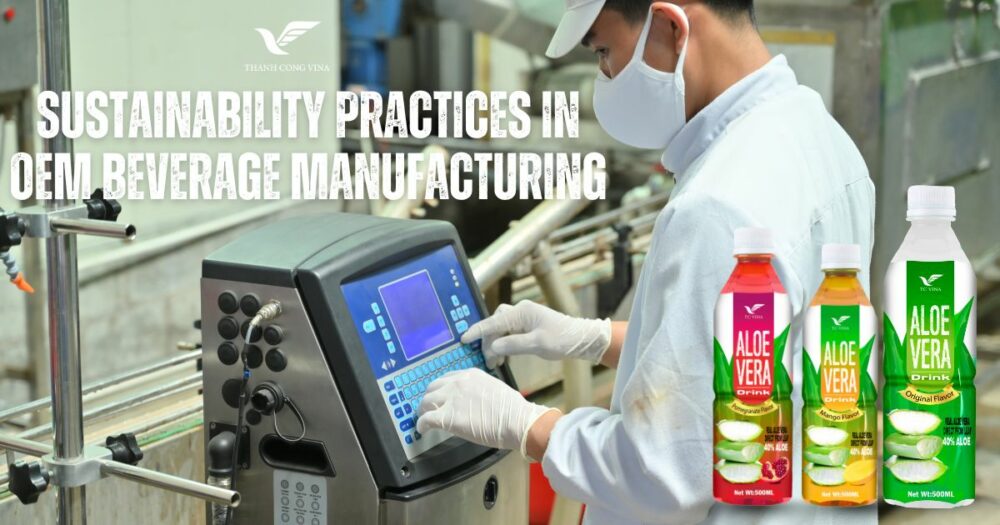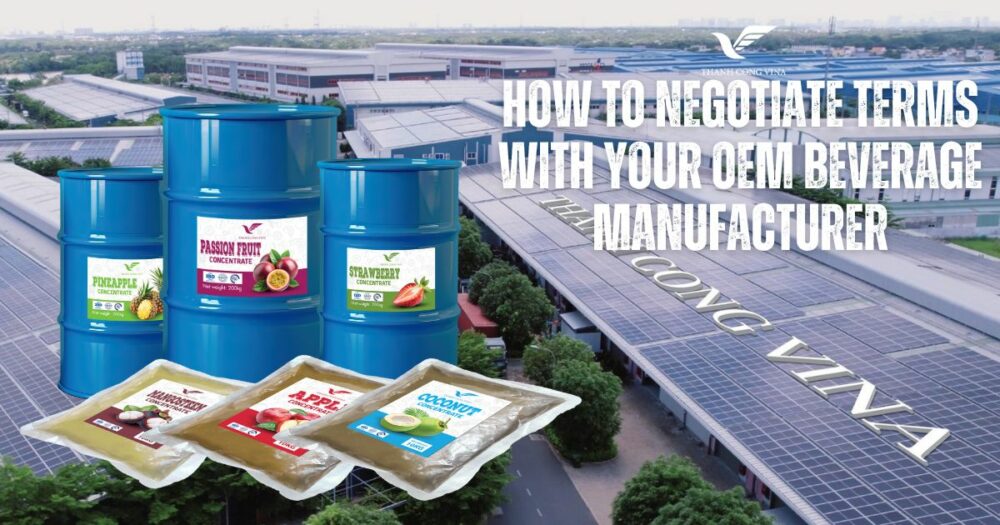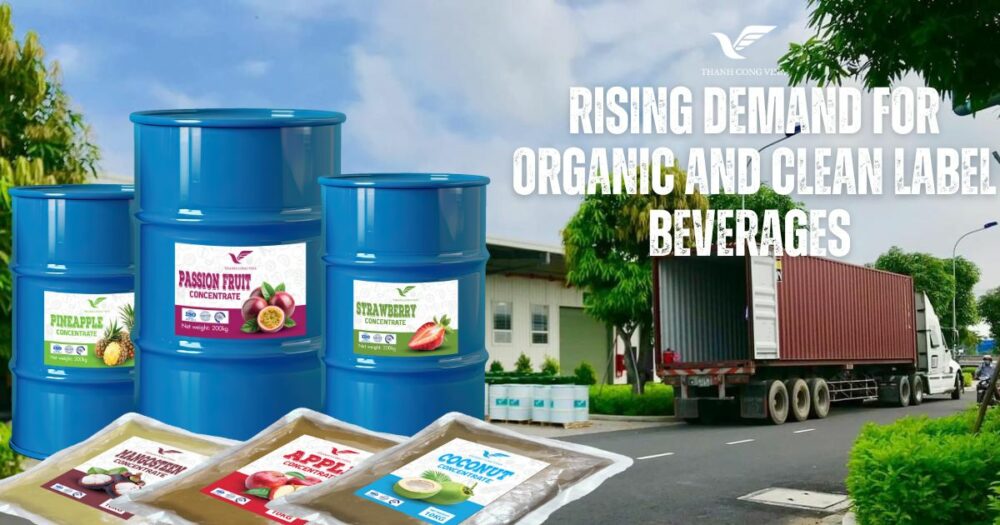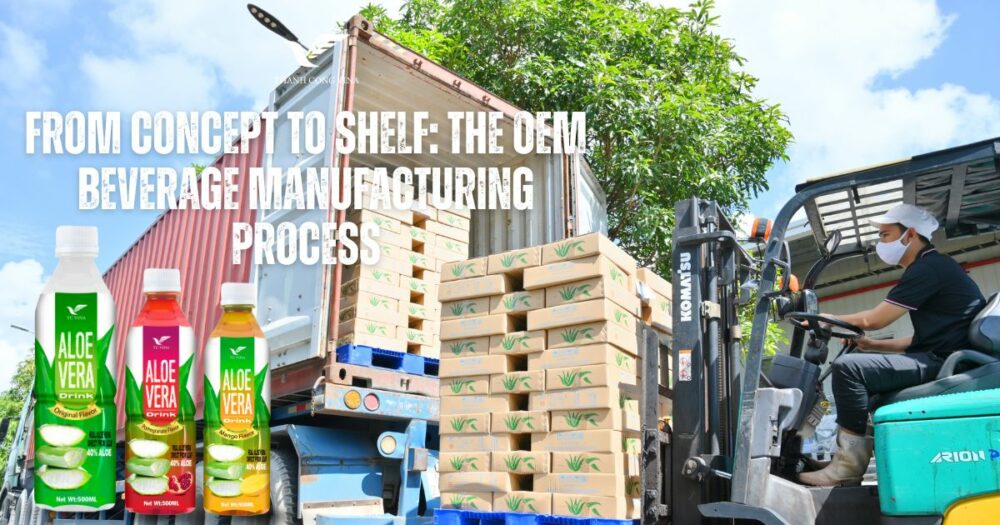Choosing the right OEM beverage partner is a strategic decision that directly affects your product quality, brand reputation, and access to global markets. Beverage buyers and private label brands must ensure that the manufacturer they select consistently complies with international food and beverage safety standards. Certifications such as HACCP, ISO, and GMP demonstrate that an OEM beverage factory has implemented strong safety management systems, performs reliable quality control, and follows legally regulated production protocols.
Understanding what each certification means will help importers assess the credibility, export readiness, and technical capabilities of a manufacturer—long before signing a contract. This article explores the world’s most recognized certifications for OEM beverage manufacturing, explains why each one matters for product safety and compliance, and provides key criteria to evaluate during supplier audits. With the right knowledge, beverage brands can confidently choose a qualified OEM partner and build strong long-term partnerships in the competitive global beverage industry.
1. Why Certifications Matter in OEM Beverage Manufacturing
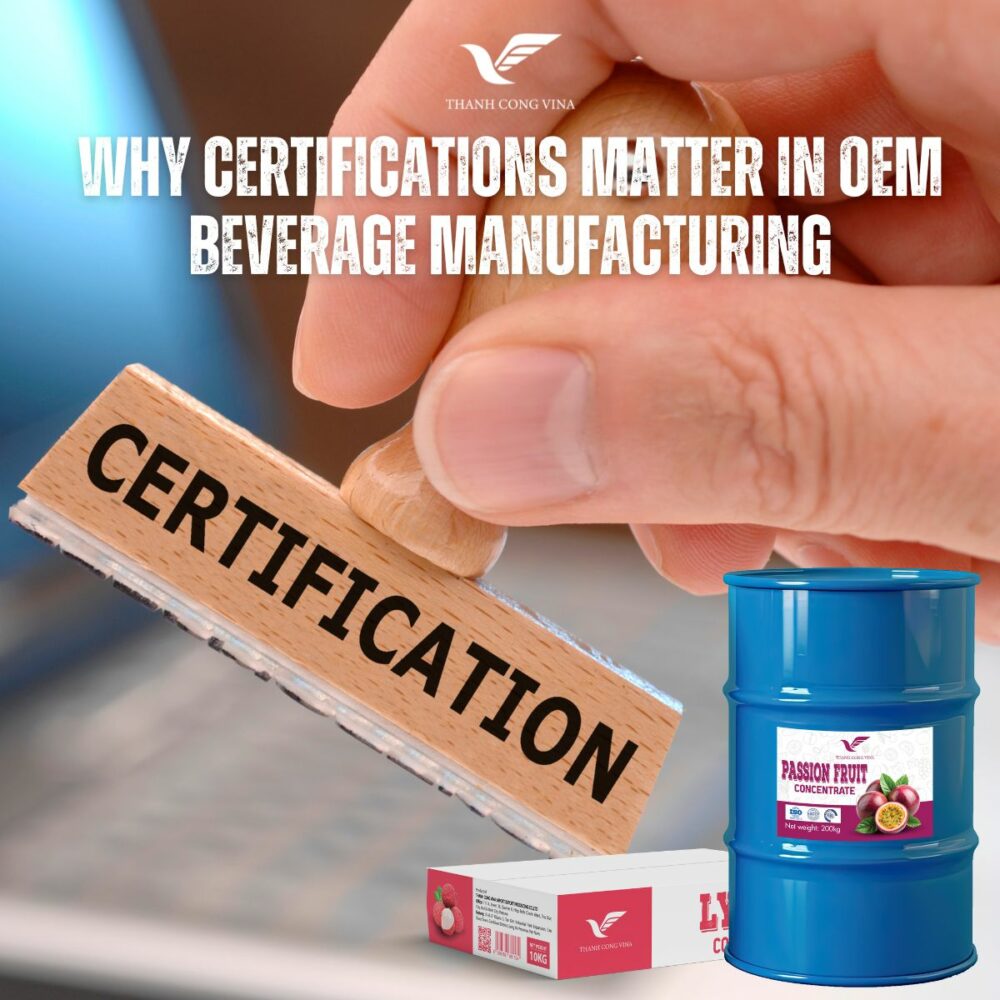
Why Certifications Matter in OEM Beverage Manufacturing
Certifications play a critical role in verifying that a beverage manufacturer meets regulatory, safety, and consumer-protection standards. For international buyers, certifications reduce business risks and strengthen market acceptance.
1.1 Certification as Proof of Compliance
Manufacturers must provide documentation to show:
-
Compliance with food safety laws
-
Transparent and traceable production controls
-
International export readiness
A certified OEM beverage manufacturer is better equipped to help brands enter regulated markets such as the EU, the U.S., and the Middle East.
1.2 Risk Reduction for Importers
Certifications help prevent:
-
Contamination incidents
-
Compliance failures at customs
-
Costly recalls
Safe products protect retailers and consumers, resulting in fewer disputes or claims.
1.3 Brand Reputation and Retailer Requirements
Retailers increasingly demand certification verification before listing products. Brands working with certified OEM beverage manufacturers gain stronger credibility, which supports premium positioning and faster distribution approvals.
2. HACCP Certification: Preventing Hazards from Farm to Bottle
Hazard Analysis & Critical Control Points (HACCP) is one of the most essential certifications for beverage manufacturing.
2.1 What HACCP Ensures
HACCP focuses on:
-
Identifying biological, chemical, and physical hazards
-
Risk prevention at every production stage
-
Strict operation tracking and real-time corrective actions
This certification assures importers that products are systematically protected from contamination.
2.2 Why HACCP Matters for Beverage Importers
HACCP is required for many export markets and supports regulatory clearance because:
-
It reduces spoilage and safety risks in beverages with pulp or aloe vera gel
-
It ensures shelf-life stability during overseas transportation
-
It protects distributors from product safety claims
2.3 What to Ask in HACCP Supplier Verification
Brands should confirm:
-
In-plant HACCP audits are up-to-date
-
Clear documentation for each critical control point (CCP)
-
HACCP integrated training for workers
Importers should ask to review HACCP audit results and monitoring reports.
3. ISO Standards: Ensuring Consistency and Continual Improvement
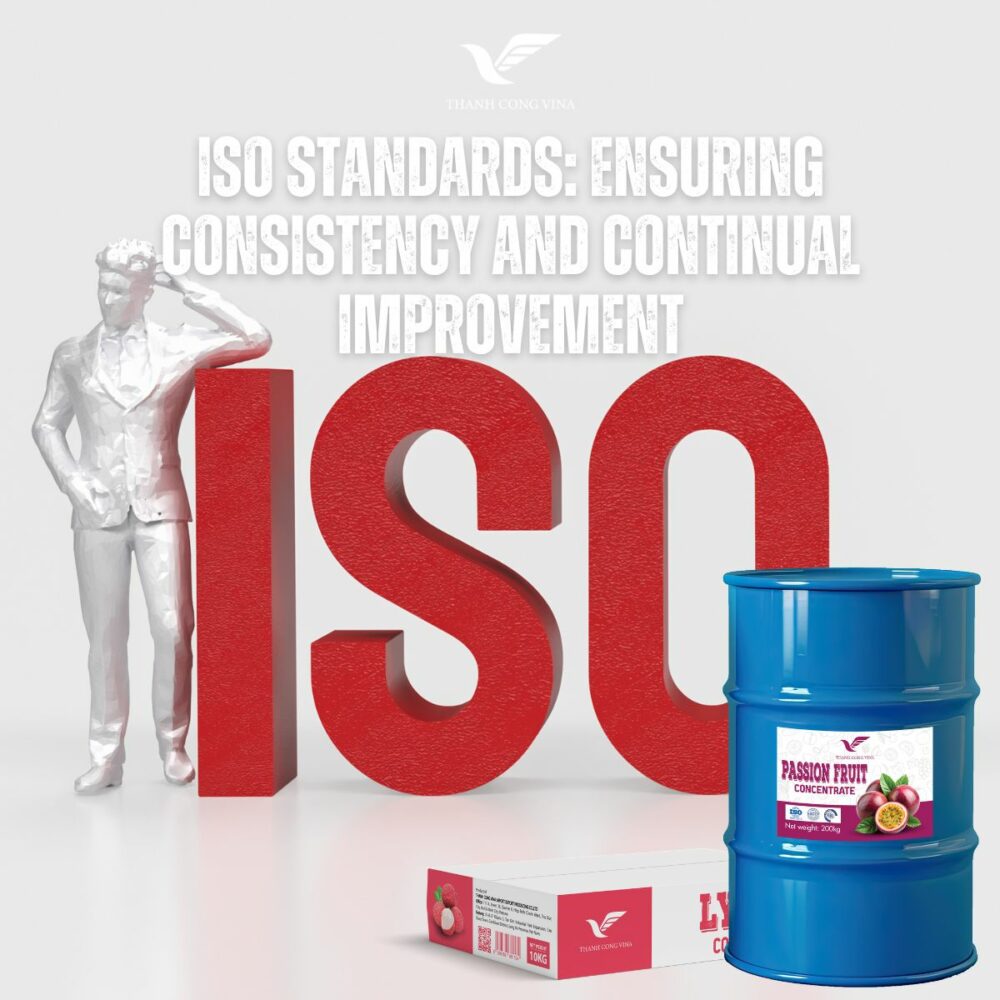
ISO Standards: Ensuring Consistency and Continual Improvement
ISO certifications provide a structured system to improve quality control, management processes, and customer satisfaction.
3.1 ISO 22000 for Food Safety Management
ISO 22000 aligns closely with HACCP but expands to broader operational control. It ensures:
-
end-to-end food safety, including packaging
-
strong traceability and product recall capability
-
continuous monitoring of process improvements
It is highly valued for beverages exported globally.
3.2 ISO 9001 for Quality Management
ISO 9001 benefits buyers through:
-
Standardized production processes
-
Reliable batch-to-batch consistency
-
Strong supplier evaluation and documentation management
It indicates the OEM beverage manufacturer cares about performance efficiency, not just safety.
3.3 How ISO Strengthens Long-Term Partnerships
ISO compliance means:
-
Faster resolution of production issues
-
More predictable delivery timelines
-
Greater customer satisfaction for business continuity
For beverage importers, ISO certification offers peace of mind that quality results are repeatable.
4. GMP Certification: Guarantees Clean and Controlled Manufacturing Conditions
Good Manufacturing Practice (GMP) ensures cleanliness, hygiene, and operational control in beverage production.
4.1 What GMP Covers
GMP requires factories to control:
-
Sanitation in equipment and environment
-
Staff cleanliness and training
-
Storage conditions and pest control
-
Handling of raw materials like fruit puree or aloe vera gel
Proper GMP implementation reduces contamination risk during processing.
4.2 Importance for Beverages with Sensitive Ingredients
Products with:
-
Live probiotics
-
Aloe vera pulp
-
Natural fruit fibers
require stricter hygiene oversight. GMP ensures such products remain safe and high-quality on arrival in international markets.
4.3 Key GMP Compliance Indicators
Importers should verify:
-
Controlled-access manufacturing areas
-
Routine sanitation audits
-
Documented cleaning and maintenance logs
A GMP-certified manufacturer is equipped for both basic and functional beverage production.
5. Halal Certification: Access to High-Growth Global Markets
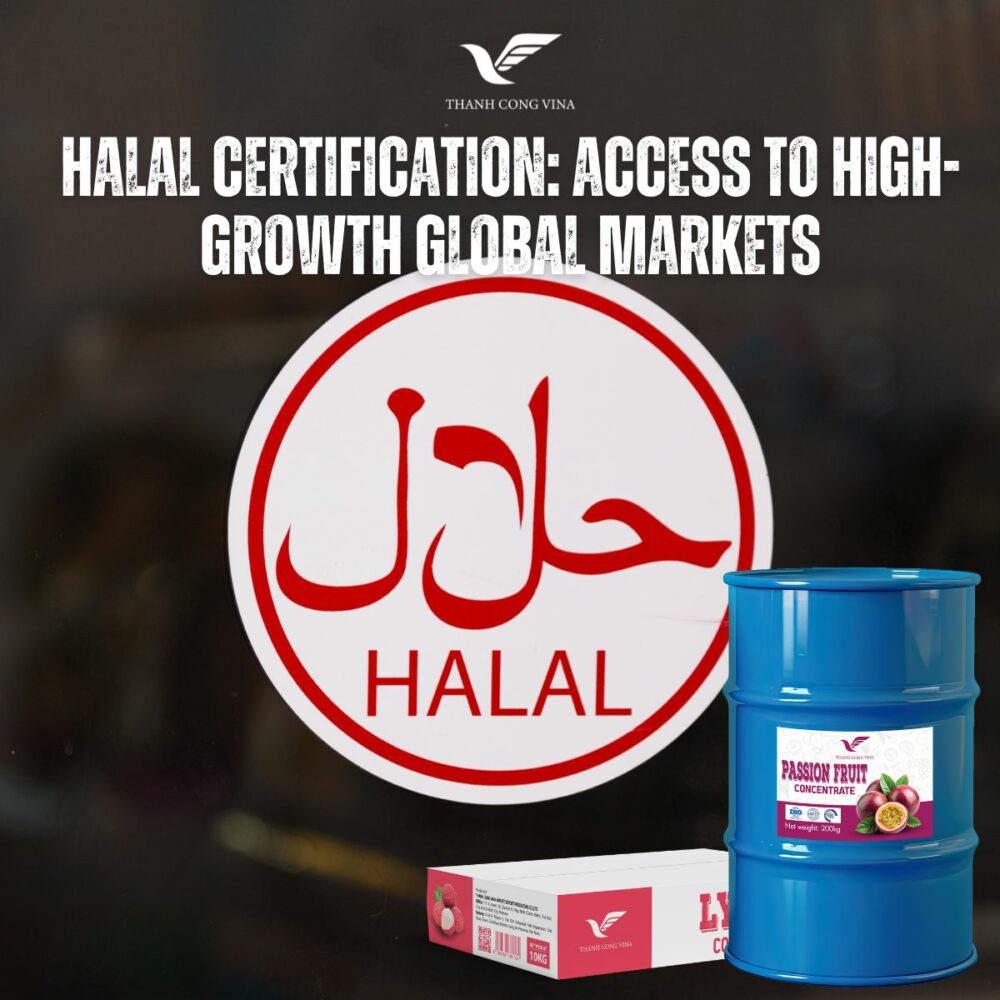
Halal Certification: Access to High-Growth Global Markets
Halal certification ensures products meet Islamic dietary regulations — a major consideration for brands exporting to Muslim-majority markets.
5.1 Why Halal Certification Supports Market Expansion
Halal certification allows distribution into:
-
Southeast Asia (Malaysia, Indonesia)
-
Middle East and Gulf markets
-
Retail chains requiring ethical labeling
These regions represent a growing segment of the global beverage market.
5.2 Compliance Requirements
Halal certification ensures:
-
Ingredients are free from restricted elements
-
No cross-contamination with prohibited substances
-
Clear traceability from sourcing to packaging
It also confirms ethical treatment and sustainability standards in production.
5.3 Reviewing a Manufacturer’s Halal System
Buyers should confirm:
-
Certification validity and audit recency
-
Transparent ingredient sourcing documentation
-
Halal-dedicated equipment or strict segregation
A Halal-ready OEM beverage partner accelerates market penetration in multiple regions.
6. FDA Registration and Export Compliance for the U.S. Market
For brands entering the United States, the U.S. Food and Drug Administration (FDA) requires registered food facilities and compliant product labeling.
6.1 What FDA Registration Means
FDA registration verifies that:
-
The manufacturer met U.S. regulatory requirements
-
Products are traceable in case of recall
-
Facility has been regularly reviewed
It does not certify product quality but supports lawful entry into the United States.
6.2 Beverage Categories Under FDA Oversight
Applies to:
-
Fruit juices and concentrates
-
Functional beverages with aloe vera or collagen
-
Ready-to-drink (RTD) products
Correct labeling is critical for:
-
Ingredient statements
-
Nutritional facts
-
Allergen identification
6.3 What Buyers Should Request
-
FDA registration number and compliance documents
-
Label review support for U.S. regulations
-
Import documentation guidance
Choosing a manufacturer familiar with U.S. compliance prevents costly shipment delays or rejections.
7. Global Certifications for Sustainability and Ethical Sourcing
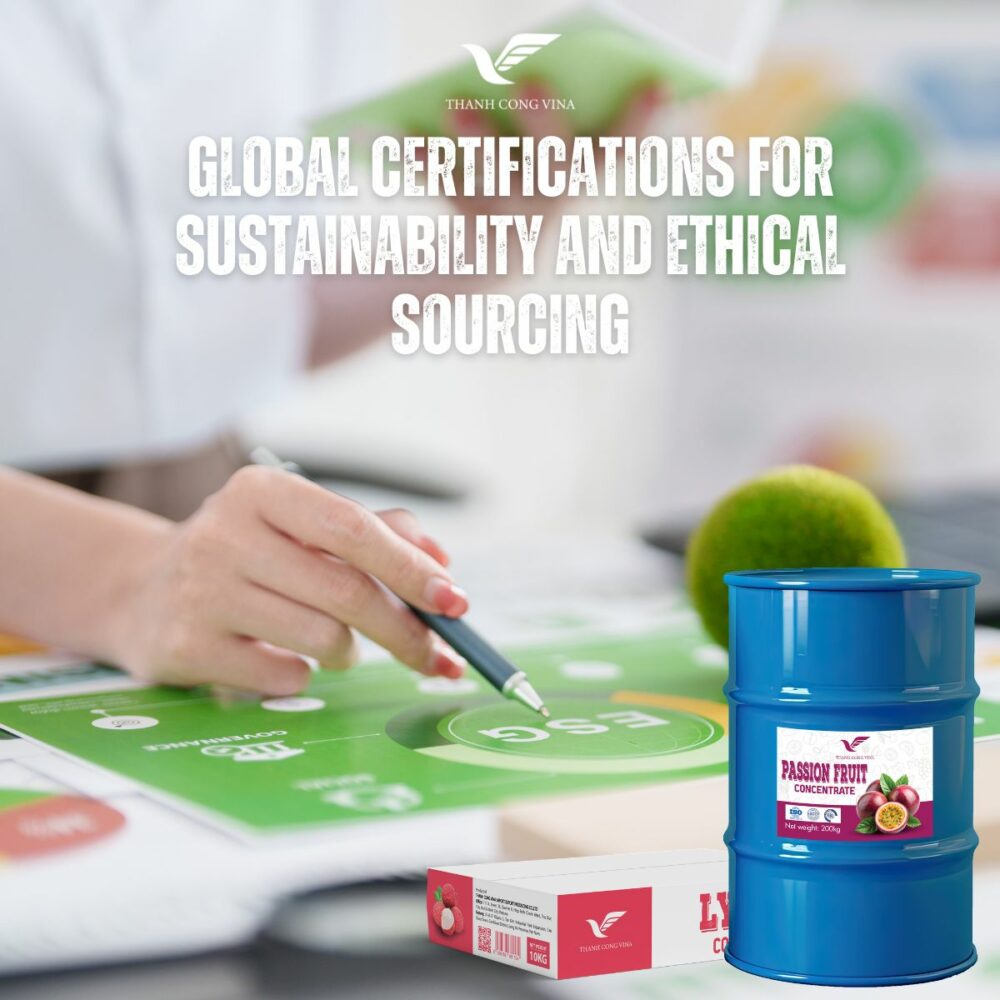
Global Certifications for Sustainability and Ethical Sourcing
Beyond safety, buyers increasingly care about environmental responsibility and ethical sourcing.
7.1 Why Sustainability Certifications Matter
They:
-
Strengthen brand reputation
-
Meet retailer and government expectations
-
Attract conscious consumers willing to pay premium prices
Manufacturers must demonstrate transparency in energy use, waste reduction, and ethical purchasing practices.
7.2 Typical Sustainability Programs
Not mandatory but highly valued:
-
Eco-friendly packaging initiatives
-
Renewable resource usage
-
Wastewater treatment and recycling systems
These programs improve a brand’s long-term competitive edge.
7.3 Questions to Ask Suppliers
-
Does the factory track environmental performance indicators?
-
Are ESG improvement goals documented?
-
Is sustainability integrated into product development?
A future-ready OEM beverage partner will invest in eco-conscious operations and innovation.
Conclusion
Certifications are the foundation of trust when partnering with an OEM beverage supplier. They verify the manufacturer’s ability to deliver safe, consistent, and compliant products in international markets. By prioritizing certifications such as HACCP, ISO, GMP, Halal, and FDA registration, beverage brands protect their business from quality risks and regulatory issues at the border or on retailer shelves.
Brands seeking a manufacturing partner with proven safety systems, export experience, and strong supply chain capabilities can rely on Thanh Cong Vina Beverage to deliver high-quality beverages customized for each target market. Backed by advanced production standards and a commitment to customer requirements, TCVina supports distributors and private label owners in creating successful, globally competitive beverage lines. Selecting the right certified OEM beverage partner is more than a compliance task—it is an investment in long-term brand growth.

